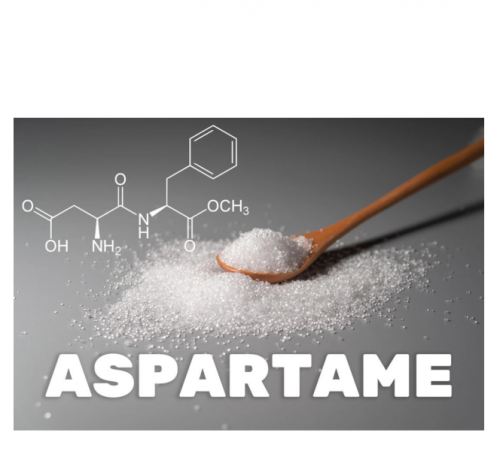please click here:
https://www.newnaturebio.com/high-intensity-sweeteners.html
Introduction
Aspartame is one of the most widely used artificial sweeteners in the modern food industry. Known for being about 200 times sweeter than sugar, it is found in a wide variety of products such as diet sodas, sugar-free gum, desserts, and even certain pharmaceutical formulations. While it offers clear benefits in terms of calorie reduction, weight management, and catering to people with specific dietary needs, aspartame has also been surrounded by debates about its safety, long-term effects, and its place in a balanced diet.
This article explores what aspartame is, how it works, its health implications, how it compares with other sweeteners, and what recent scientific research says.
What is Aspartame?
Aspartame is a low-calorie artificial sweetener composed of two amino acids: phenylalanine and aspartic acid. These amino acids occur naturally in many protein-containing foods. When consumed, aspartame is broken down by the body into these building blocks along with a small amount of methanol. Despite the concerns about methanol, the quantity produced is minimal and comparable to what occurs naturally in fruits and vegetables.
Aspartame's unique chemical structure allows it to deliver intense sweetness without contributing significant calories, which is why it is favored in low-sugar and sugar-free products.
How Aspartame Works in the Body
When consumed, aspartame undergoes digestion in the gastrointestinal tract. The three main components it breaks down into are:
-
Aspartic acid – a naturally occurring amino acid.
-
Phenylalanine – another amino acid that is safe for most people but must be avoided by individuals with phenylketonuria (PKU), a rare genetic condition.
-
Methanol – present in very small quantities, comparable to what is naturally found in fruit juices and vegetables.
Unlike sugar, which provides about 4 calories per gram, the minimal amount of aspartame needed to achieve sweetness means it adds almost no calories to foods and beverages.
Common Uses of Aspartame
Aspartame is found in thousands of products globally, including:
-
Diet soft drinks
-
Sugar-free chewing gum
-
Low-calorie desserts
-
Flavored water and sports drinks
-
Yogurts
-
Pharmaceutical syrups and chewable tablets
Its stability in dry goods makes it particularly effective for packaged products, though it is less stable under high heat, which means it is not ideal for baking.
Benefits of Aspartame
Weight Management and Calorie Reduction
One of the main advantages of aspartame is its role in reducing sugar consumption. By providing sweetness without calories, it supports people who want to lose weight or maintain their weight.
Diabetes Management
Aspartame does not significantly raise blood glucose levels, making it a useful sugar substitute for individuals with diabetes. While it still requires moderation, it helps reduce overall carbohydrate intake.
Dental Health
Unlike sugar, aspartame does not promote tooth decay, making it a better option for oral health.
Taste Enhancement
Aspartame blends well with other sweeteners and can enhance flavor in certain beverages and foods, making products more palatable.
Concerns and Potential Risks
Safety for People with PKU
The most well-documented concern is for individuals with phenylketonuria (PKU). Since their bodies cannot process phenylalanine properly, consuming aspartame could be dangerous. For this reason, products containing aspartame must carry warning labels.
Cancer Concerns
Over the years, several studies have questioned whether aspartame might be linked to cancer. The majority of regulatory bodies, including the FDA, EFSA, and WHO, have concluded that aspartame is safe for consumption within established daily intake limits. However, some research continues to examine long-term effects, and debates remain in the scientific community.
Digestive Sensitivity
Some individuals report headaches, dizziness, or mild digestive discomfort after consuming aspartame, though these cases are relatively uncommon and not strongly supported by clinical trials.
Aspartame Compared with Other Sweeteners
| Sweetener | Type | Sweetness vs. Sugar | Calories | Heat Stability | Common Uses | Safety Notes |
|---|---|---|---|---|---|---|
| Aspartame | Artificial | ~200x | Near 0 | Low | Soft drinks, yogurt, gum | Unsafe for people with PKU |
| Sucralose | Artificial | ~600x | Near 0 | High | Baking, beverages | Generally recognized as safe |
| Stevia | Natural (plant) | ~200-300x | Near 0 | High | Drinks, desserts, health foods | Some find it has a bitter aftertaste |
| Saccharin | Artificial | ~300-400x | Near 0 | High | Packaged foods, soft drinks | Once linked to cancer, now considered safe |
| Sugar (sucrose) | Natural | 1x | 4 kcal/g | High | Universal use | Excess leads to obesity, diabetes risk |
Regulatory Perspective on Aspartame
Global food safety authorities have thoroughly evaluated aspartame for decades. Organizations such as the FDA, European Food Safety Authority (EFSA), and World Health Organization (WHO) all agree that aspartame is safe when consumed within the acceptable daily intake (ADI).
The ADI for aspartame is set at 40 mg per kilogram of body weight per day by EFSA and 50 mg/kg by the FDA. For an average adult, this translates into a quantity far greater than most people would ever consume through normal dietary habits.
Recent Research and Developments
Scientific research continues to explore potential links between aspartame and various health outcomes. While most large-scale studies confirm safety, some newer findings suggest a possible association between very high consumption and rare health effects, such as changes in gut microbiota or appetite regulation. These results are not conclusive but show why ongoing monitoring remains important.
Practical Tips for Consumers
-
Read food labels carefully, especially if you have PKU.
-
Use aspartame-containing products in moderation, just as with any sweetener.
-
If you notice sensitivity or discomfort, consider switching to alternatives like stevia or sucralose.
-
Focus on an overall balanced diet rather than relying heavily on artificial sweeteners.
Frequently Asked Questions
1. Is aspartame safe for children?
Yes, aspartame is generally considered safe for children, except for those with PKU. Parents should monitor intake to ensure it remains within the safe daily limits.
2. Does aspartame cause weight gain?
Aspartame itself does not contribute calories, so it does not directly cause weight gain. However, overall diet and lifestyle factors play a larger role in body weight.
3. Can aspartame cause cancer?
Current evidence from major health authorities does not support a link between aspartame and cancer when consumed within recommended limits.
4. Is aspartame suitable for people with diabetes?
Yes, aspartame does not significantly raise blood sugar levels, making it a useful sugar alternative for people managing diabetes.
5. Can I use aspartame in baking?
Aspartame is not heat-stable, which means it may lose sweetness when exposed to high temperatures. For baking, sucralose or stevia are better options.
Summary
Aspartame is a widely used artificial sweetener that offers sweetness without calories, making it popular for weight management and diabetes care. While safe for most people within recommended limits, individuals with PKU must avoid it. Ongoing research ensures its safety profile remains closely monitored.






